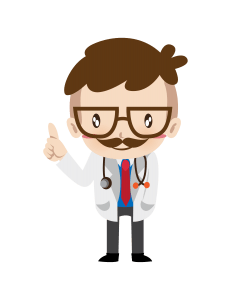Diabetes Treatment – Hyperglycemia Versus Hypoglycemia
Diabetes treatment and that there are many factors that go into the absolute value of your blood sugar—how much you eat, what kinds of food you eat, and how much you exercise, for example. When the blood sugar goes up in a normal person, the Islet cells in the pancreas put out insulin to lower the blood sugar to normal values. When food is taken in, the blood sugar goes back up. The idea is to keep the blood sugar level within a specific range, usually 80-180 mg/dL.
Diabetics have a more difficult time controlling their blood sugar and using diabetes treatment, because either not enough insulin is made or because the cells have become resistant to insulin, leaving sugar inside the bloodstream that can rise to dangerous levels.
This is why exercise, diet, and medications are used to bring the blood sugar into normal range. Even with these modifications, the blood sugar is more difficult to control, leaving the diabetic in a hypoglycemic or hyperglycemic state. Neither of these states is comfortable.
When the blood sugar goes above 200 mg/dL or so, you become hyperglycemic. Levels above 300 mg/dL are considered very hyperglycemic and you can begin to develop symptoms. The high blood sugar affects all the organs of the body and you may begin to notice symptoms.
Symptoms of Hyperglycemia
These symptoms develop rather gradually so that you might not notice them until the blood sugar is elevated for several days or weeks. They include:
• Increased thirst
• Blurry vision
• Frequent urination
• Fatigue and general weakness
• Headache
As time goes on with blood sugars continually elevated, you might notice these symptoms:
• Nausea and vomiting
• Breath that smells fruity
• Shortness of breath
• Weakness
• Dry mouth
• Increasing confusion
• Pain in the abdomen
• Diabetic coma
Before these symptoms get out of hand and cause organ damage, you should seek medical advice or at least check your blood sugar on a home glucose monitor and implement a diabetes treatment right away if necessary. Your blood sugar needs to be normalized, likely through the use of insulin or other medications.
Symptoms of Hypoglycemia
The symptoms of hypoglycemia can come on at varying numbers of blood sugar numbers but a typical level indicating hypoglycemia is anything less than 50 mg/dL. Initially, the first symptoms are of a sympathetic nature, which is your body’s first response to a blood sugar that needs increasing.
You may notice any of the following symptoms in the beginning:
• Sweating
• Nervousness
• Intense hunger
• Palpitations
• Weakness
• Difficulty speaking
These symptoms tend to be fairly uncomfortable so you notice when you’re hypoglycemic. If you are being treated for diabetes with a diabetes treatment, you are likely to be less aware of hypoglycemia happening and you will be less likely to tell that your blood sugar is off. This is a phenomenon known as “hypoglycemic unawareness” and can be extremely dangerous.
The natural response to a hypoglycemic state is to feel compelled to eat something. If you don’t feel it for some reason or if you can’t take in enough food in order to combat the lowered blood sugar, the symptoms can change and can become more serious. This is why implementing a diabetes treatment at all times can be helpful with prevention.
The symptoms of a serious hypoglycemic reaction include the following:
• Confusion
• Sleepiness
• Behavioral changes
• Seizures
• Diabetic coma
When this happens, the patient goes into what’s called the “neuro-glyco-penic range”. The brain, which relies on glucose for all its fuel, begins to fail and death can result from such low blood sugars, even if it’s over a very short period of time.
If you have diabetes, it pays to talk over the symptoms of hypo- and hyperglycemia so you or your loved ones can identify that the blood sugar disturbances and can take proper measures to normalize the blood sugar before there is permanent organ damage. A diabetes treatment is easily accomplished with the help of loved ones. You don’t have to go at it alone.
The most important thing is get blood sugar under control. Seek medical attention, monitor your glucose to be sure, and avoid the many serious complications of diabetes.

